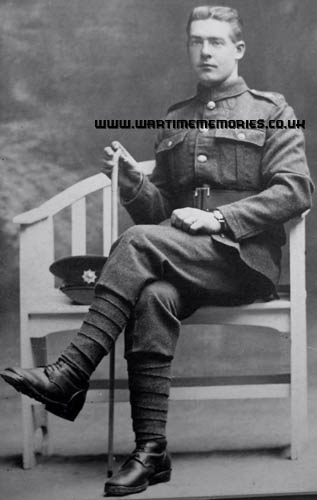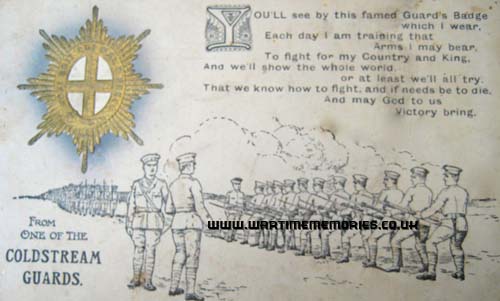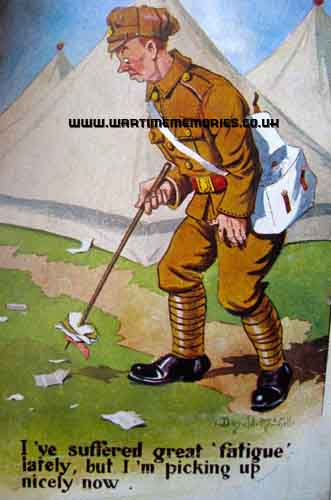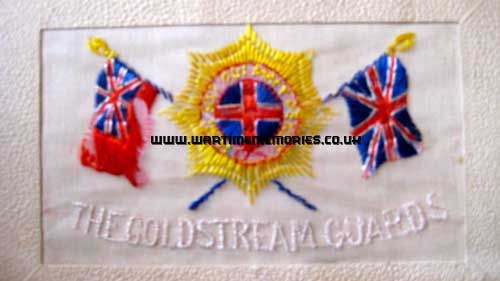Additions will be checked before being published on the website and where possible will be forwarded to the person who submitted the original entries. Your contact details will not be forwarded, but they can send a reply via this messaging system.
please scroll down to send a message
Gdsmn. Harold "Wingy" Whitehouse
British Army 3rd Btn. Coldstream Guards
from:Renishaw, Derbyshire
Harold Whitehouse was a promising footballer who had played for his local town of Chesterfield (his nickname came from this, he played on the wing, hence Wingy). He worked as a labourer at Ireland Colliery, Staveley, Derbyshire. Harold initially signed up in Staveley on his way back home from work. He was allocated to The King's Own Yorkshire Light Infantry but later, on the advice of a friend, he transferred to the Coldstream Guards. Being under the required height, only 5 feet 10 inches, the muster sergeant told him to stand at the back of the squad on his tiptoes and he was in.
Whilst on guard in one of the halls at Windsor Castle a chap in tennis whites strolled past him. Harold thought no more of it until two rather hefty, tall military policemen stood one either side of him, lifted him by the armpits and marched him off to peel spuds for what seemed an age. His first crime was not to recognise the Prince of Wales and the second was not to salute him.
Whilst on leave back home he married on 4th of September 1918 then went back to war. He ending up billeted in Koln, Barbarossaplatz und Hohenstaufenring after the war, sending postcards of Koln on the 18th and 21st December 1918.
He would very rarely talk about the war. One story he told was that a friend did him a favour and went to fetch ammunition that Harold was about to fetch, but his mate never returned and was presumed dead. My uncle related another rare story told by his father that a football saved his dad's life. In a match before a big advance Harold was badly injured in the game and was deemed unfit for action. In the following battle a lot of his friends and comrades were slaughtered. Another story Pop told his son was when he came home on leave after being in the trenches and he and other local soldiers had to strip in Renishaw School yard to be deloused.
Harold was transferred to the reserves on 6th February 1919 and was to report back to Windsor in case of emergency. He then came home and went back to Ireland Colliery. He had a family of eight, but his first-born, a daughter, died a few months after birth in 1920. In the village he was respected and regarded as a bit of a wise man.
In WWII he used roll up at home with soldiers he came across, hanging around the local railway station waiting for transport trains. He gave them food and drink as he knew what they might have to face.
I can still see him now, always smartly dressed even though in his everyday clothes. He would sit in his armchair near the coals burning in the Yorkshire range grate, contemplating his life, the horrors he had witnessed and the many losses. He was always smartly dressed even in his casuals. Belt and braces, waistcoat over a checked shirt, flat cap, corded trousers, woolly socks up to just below the knee, very clean boots, spectacles perched on the end of his nose. His right hand holding and puffing on a pipe tobacco. The thumb of his left hand would be just inside his left nostril and his index finger gently stroking the outside of his nose. He never had or wanted a TV but listened to the radio. He was a keen gardener and pigeon racer. He died in 1975 after an eventful life.
Old soldiers never die but march on to oblivion. R.I.P.



